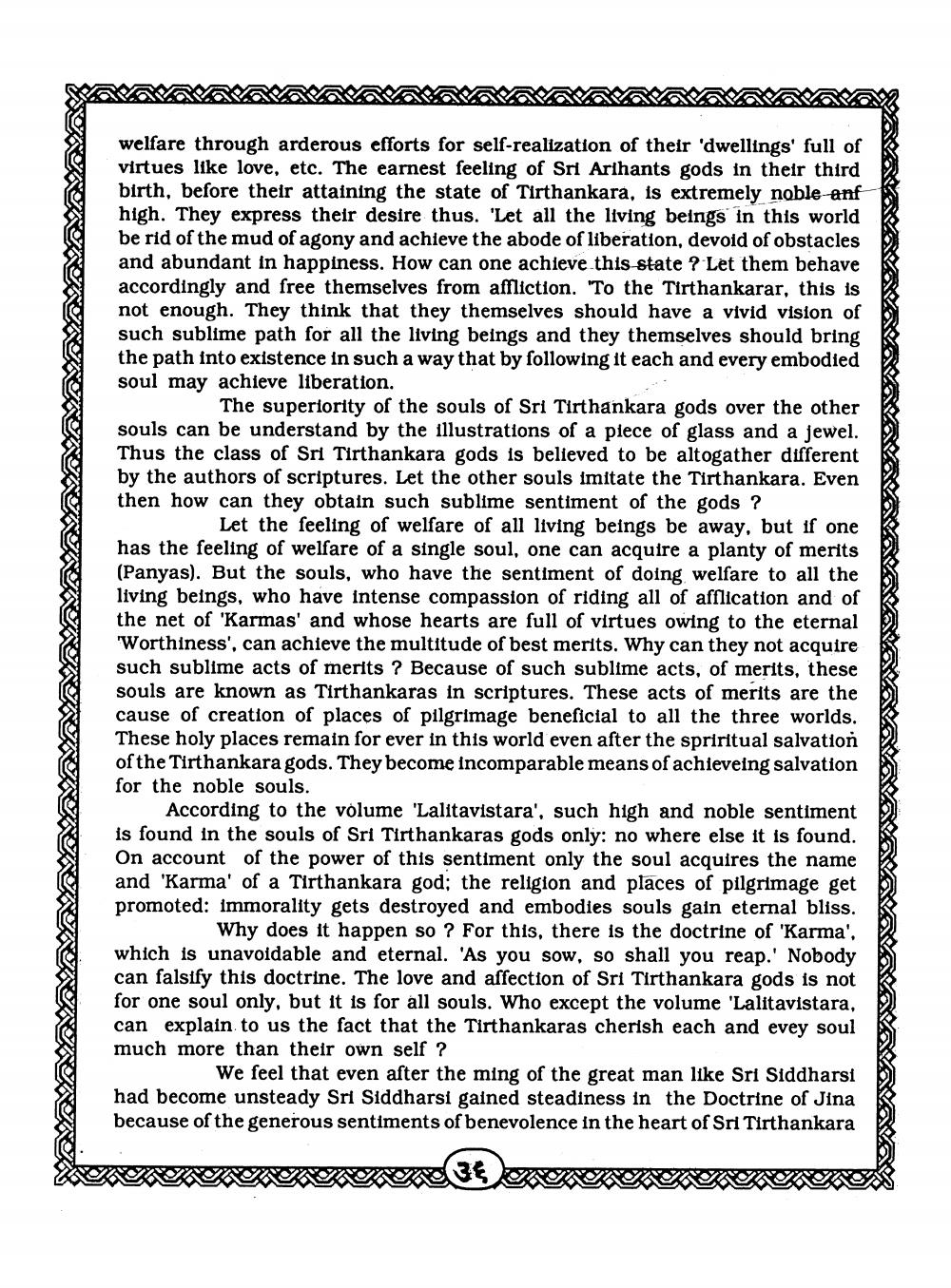________________
welfare through arderous efforts for self-realization of their 'dwellings' full of virtues like love, etc. The earnest feeling of Sri Arthants gods in their third birth, before their attaining the state of Tirthankara, is extremely noble-anf high. They express their desire thus. 'Let all the living beings in this world be rid of the mud of agony and achieve the abode of liberation, devoid of obstacles and abundant in happiness. How can one achieve this state ? Let them behave accordingly and free themselves from affliction. "To the Tirthankarar, this is not enough. They think that they themselves should have a vivid vision of such sublime path for all the living beings and they themselves should bring the path into existence in such a way that by following it each and every embodied soul may achieve liberation.
The superiority of the souls of Sri Tirthankara gods over the other souls can be understand by the illustrations of a piece of glass and a jewel. Thus the class of Sri Tirthankara gods is believed to be altogather different by the authors of scriptures. Let the other souls imitate the Tirthankara. Even then how can they obtain such sublime sentiment of the gods ?
Let the feeling of welfare of all living beings be away, but if one has the feeling of welfare of a single soul, one can acquire a planty of merits (Panyas). But the souls, who have the sentiment of doing welfare to all the living beings, who have intense compassion of riding all of afflication and of the net of 'Karmas' and whose hearts are full of virtues owing to the eternal 'Worthiness', can achieve the multitude of best merits. Why can they not acquire such sublime acts of merits ? Because of such sublime acts, of merits, these souls are known as Tirthankaras in scriptures. These acts of merits are the cause of creation of places of pilgrimage beneficial to all the three worlds. These holy places remain for ever in this world even after the spriritual salvation of the Tirthankara gods. They become incomparable means of achieveing salvation for the noble souls.
According to the volume 'Lalitavistara', such high and noble sentiment is found in the souls of Sri Tirthankaras gods only: no where else it is found. On account of the power of this sentiment only the soul acquires the name and 'Karma' of a Tirthankara god; the religion and places of pilgrimage get promoted: immorality gets destroyed and embodies souls gain eternal bliss.
Why does it happen so ? For this, there is the doctrine of 'Karma', which is unavoidable and eternal. 'As you sow, so shall you reap.' Nobody can falsify this doctrine. The love and affection of Sri Tirthankara gods is not for one soul only, but it is for all souls. Who except the volume 'Lalitavistara, can explain to us the fact that the Tirthankaras cherish each and evey soul much more than their own self?
We feel that even after the ming of the great man like Sri Siddharsi had become unsteady Sri Siddharsi gained steadiness in the Doctrine of Jina because of the generous sentiments of benevolence in the heart of Sri Tirthankara




